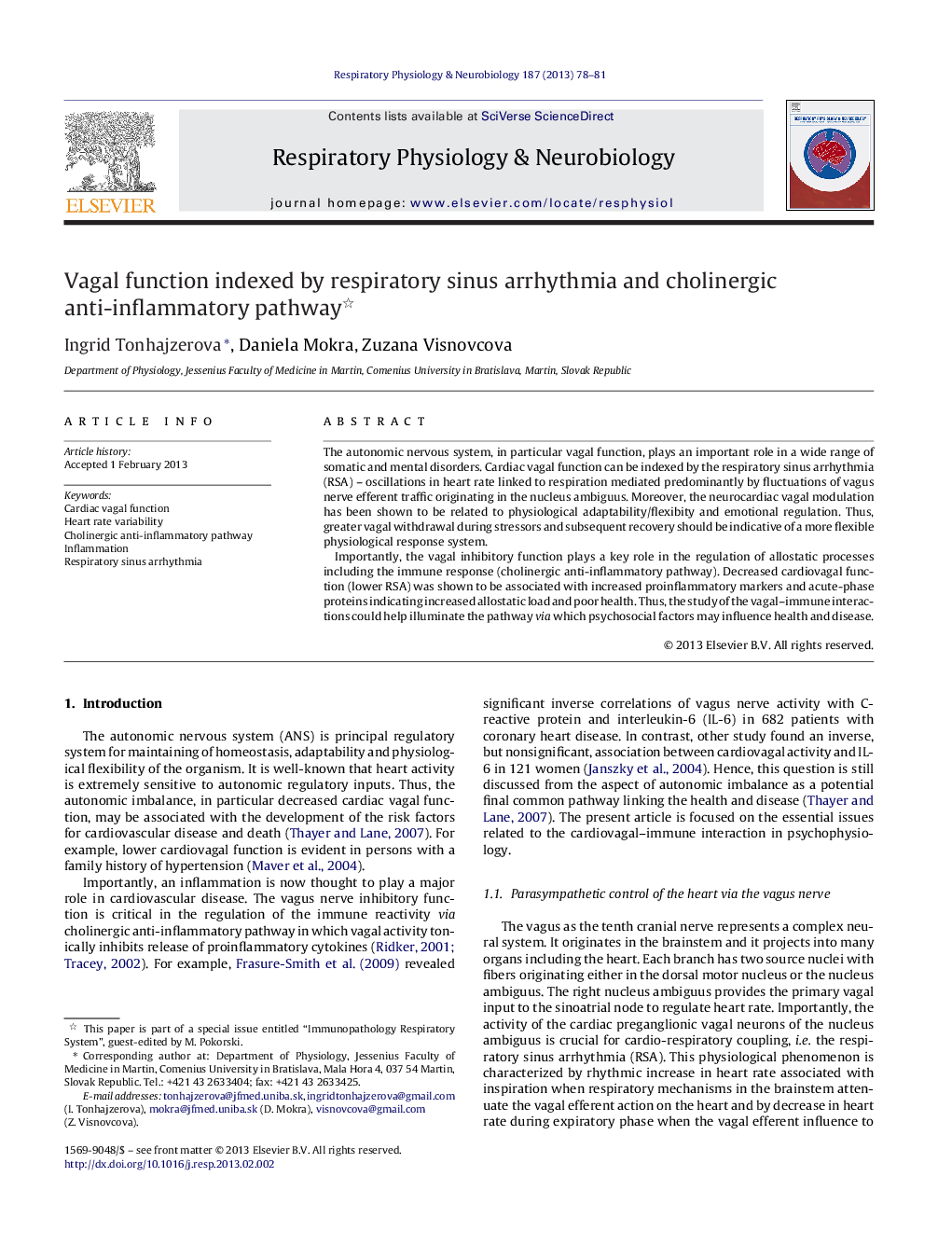| Article ID | Journal | Published Year | Pages | File Type |
|---|---|---|---|---|
| 2847178 | Respiratory Physiology & Neurobiology | 2013 | 4 Pages |
The autonomic nervous system, in particular vagal function, plays an important role in a wide range of somatic and mental disorders. Cardiac vagal function can be indexed by the respiratory sinus arrhythmia (RSA) – oscillations in heart rate linked to respiration mediated predominantly by fluctuations of vagus nerve efferent traffic originating in the nucleus ambiguus. Moreover, the neurocardiac vagal modulation has been shown to be related to physiological adaptability/flexibity and emotional regulation. Thus, greater vagal withdrawal during stressors and subsequent recovery should be indicative of a more flexible physiological response system.Importantly, the vagal inhibitory function plays a key role in the regulation of allostatic processes including the immune response (cholinergic anti-inflammatory pathway). Decreased cardiovagal function (lower RSA) was shown to be associated with increased proinflammatory markers and acute-phase proteins indicating increased allostatic load and poor health. Thus, the study of the vagal–immune interactions could help illuminate the pathway via which psychosocial factors may influence health and disease.
► Vagal inhibitory function plays a key role in inflammation. ► Cardiac vagal function is inversely associated with inflammatory markers. ► Respiratory sinus arrhythmia is considered as an index of cardiovagal function.
